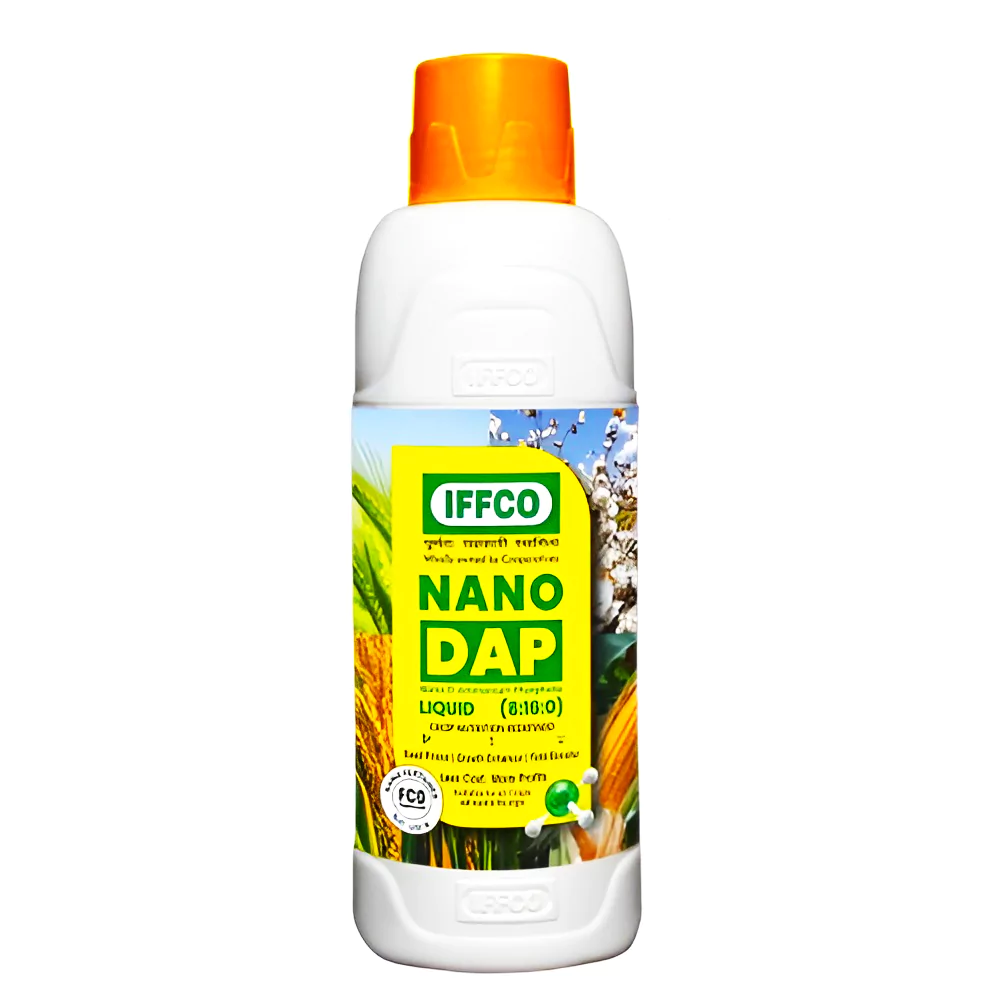Context
Recently, the Interim Budget 2024-25 presented by the Union Finance Minister announced the expansion of the application of Nano DAP on various crops in all agro climatic zones.
About DAP or Di-Ammonium Phosphate
- Di-ammonium Phosphate popularly known as DAP (46% P, 18% Nitrogen) is a preferred fertilizer in India because it contains both Nitrogen and Phosphorus which are primary macronutrients and part of 18 essential plant nutrients.
- It is the second most commonly used fertilizer in India after urea.
- It is thus applied just before, or at the time of sowing.
- It is rich in phosphorus (P) that stimulates root establishment and development.
Indian Farmers Fertiliser Cooperative Limited (IFFCO)
- It was founded in 1967.
- Headquarters: New Delhi.
- It is one of India’s biggest cooperative societies which is wholly owned by Indian Cooperatives and is a multi-state cooperative society.
|
What is Nano DAP?
- Launch: The Union Home Minister launched Indian Farmers Fertiliser Cooperative’s (IFFCO’s) Nano DAP in April 2023.
- Composition: 8% Nitrogen and 16% Phosphorus by volume.
- Characteristic Features:
- In Liquid State: Unlike conventional DAP, which comes in granular form, IFFCO’s Nano DAP is in liquid form.

-
- Smaller Size: Its particle size is less than 100 Nanometre (nm).
- More Efficient: This tiny particle size makes Nano DAP more efficient and enables the fertilizer to enter easily inside the seed surface or through stomata and other plant openings.
- Higher Yield: Better assimilation of the fertilizer inside the plant system leads to “higher seed vigor, more chlorophyll, photosynthetic efficiency, better quality and increase in crop yields.”
Benefits of Nano DAP
- Efficiency: It is more efficient than conventional DAP.
- Affordability: It is more pocket-friendly than conventional DAP.
- Subsidy Relief: Since the government provides significant subsidies on DAP, the adoption of a more inexpensive fertilizer will likely be a significant relief to the government’s subsidy burden.
- Convenience: It is easier to transport, store, and use than conventional DAP.
- Reduced Imports: India currently imports significant quantities of fertilizer to meet domestic demand but the adoption of domestically-produced Nano DAP (produced in Kalol, Gujarat- India’s 1st IFFCO’s Nano DAP (Liquid) plant) can significantly reduce this import burden.
- Self-Reliance: The adoption of Nano DAP will help in achieving self-sufficiency in fertilizers and greatly benefit Indian farmers.
- Agricultural Growth: The adoption of Nano DAP will help Indian agriculture forward in foodgrain production and agricultural growth and development.
Conclusion
The various significant benefits of Nano DAP underscores the necessity for its more adoption and expansion. The expansion of the application of Nano DAP on various crops in all agro climatic zones is a right and required step, however the need to strike a balance between technological advancements and environmental sustainability is must.
Also Read:
News Source: The Indian Express
![]() 3 Feb 2024
3 Feb 2024
